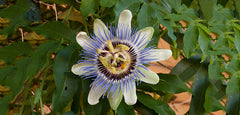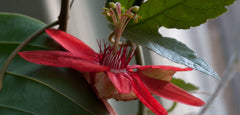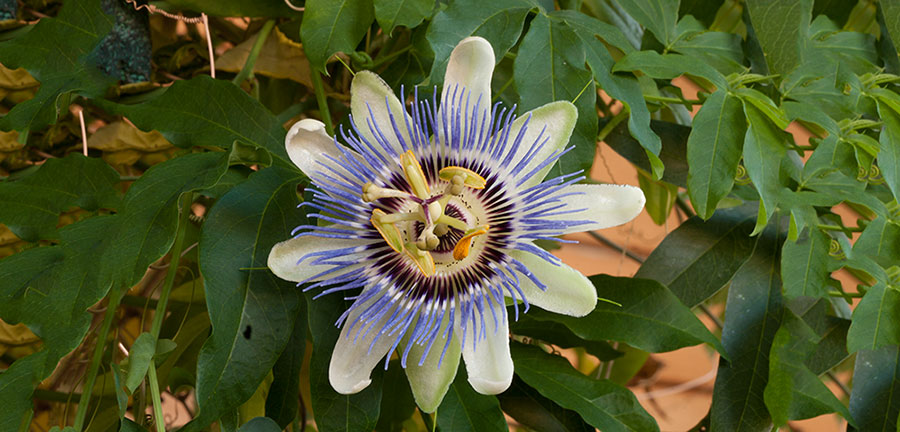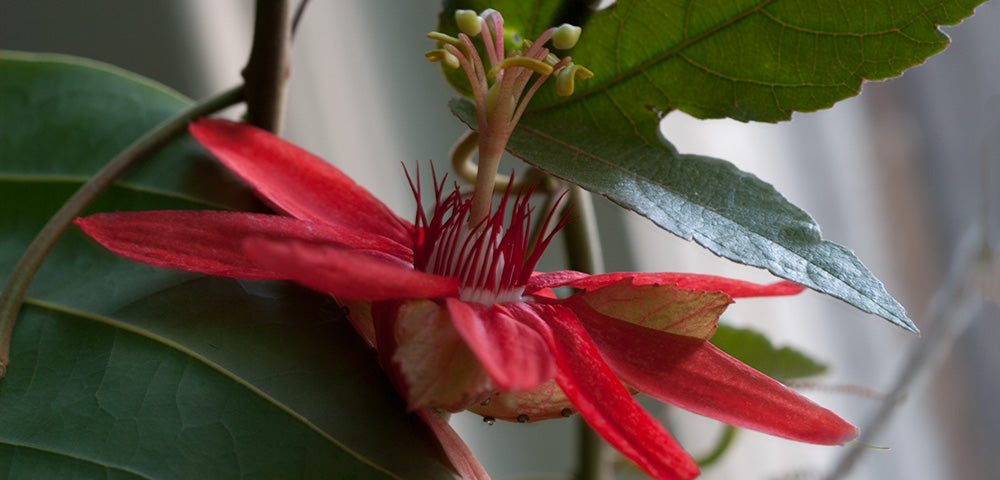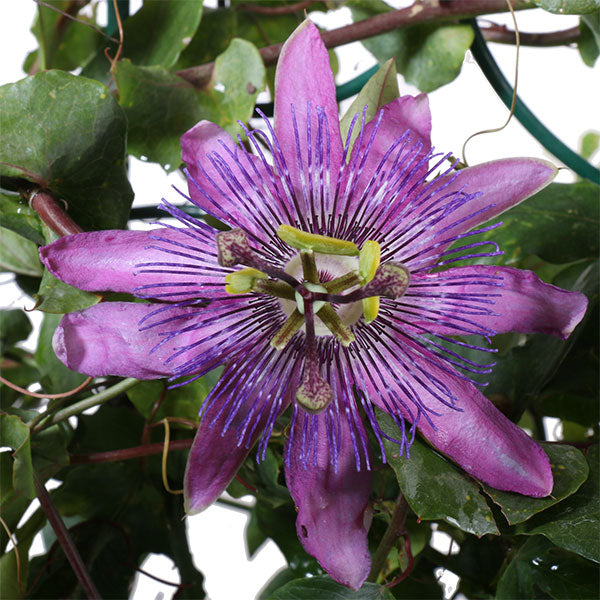Passionflower (Passiflora spp.)
Passionflower Plant Features
Passionflower is one of the most exotic flowering vines available. It's a fast-growing tropical prized for its tolerance to heat and humidity. There's also a wealth of varieties available; you can find passionflowers that bloom in shades of blue, purple, pink, red, orange, white, and even yellow. Most types love full sun, but there are varieties that prefer some shade in the heat of the afternoon.Grow this heat-loving tropical in containers or beds and borders. In the North, it's a stunning container-garden plant to grow on a trellis or against a wall. It also thrives as an annual in the landscape. In the South, passionflower is a perennial vine that's evergreen in frost-free climates. It's lovely by itself, paired with other vines, or you can grow some varieties through large shrubs.
Note: Many passionflower varieties are host plants for certain species of butterflies. The butterflies love the flowers and caterpillars can voraciously eat the foliage. Because of their fast growth, you can allow the caterpillars to munch away on the plant; the passionflower will usually keep up.
You can also grow passionflower as a houseplant, using it to create lots of interest on a sunny windowsill.
Passionflower Questions? No problem! Our tropical-plant experts are happy to help. Just send us an email!
Passionflower Growing Instructions
Because different varieties of passionflowers like different conditions, it's best to read the plant tag for specifics. In general, however, grow passionflowers in a spot with full sun. The vines can tolerate shade, but the more they're shaded, the less these tropicals flower.Water passionflowers when the soil starts to dry out. Many are native to dry, rocky soil and don't like to be constantly wet. However, because they grow so fast, they can use a lot of water -- so you may need to water them regularly, especially if you grow them in containers.
Fertilize passionflowers once or twice a year with a general-purpose plant food. The best time to fertilize is in spring and summer, when they're actively growing. If you want your plants to grow faster, you can fertilize more often; just be sure to follow the instructions on the plant food package.
If your passionflower grows bigger than you'd like, you can prune it back at any time.
Note: Passionflower is a gorgeous plant, but it's not intended for human or animal consumption.
-
Water
Medium water needs
-
Light
Indoors: High light
Outside: Part sun
Outside: Sun
-
Colors
Blue
Green
Orange
Pink
Purple
Red
Variegated
White
Yellow
-
Special Features
Attracts butterflies
Deer/rabbit resistant
Fragrant flowers/foliage
Super-easy to grow
Complement your Passionflower
MandevillaMandevilla is another heat-loving tropical vine that grows well with passionflower.
Jasmine
Jasmine is a lovely, easy-to-grow vine that looks great with passionflower.
